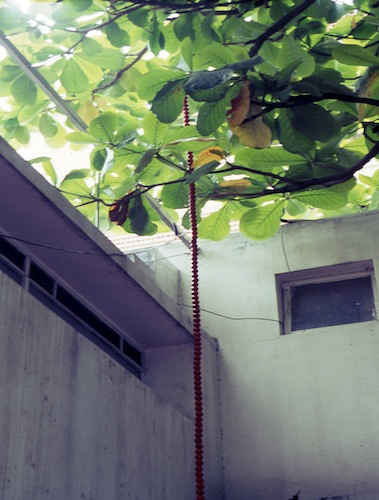
Sofie Haesaerts, ‘Red creaper’ (2008)
String of red lacquered beads
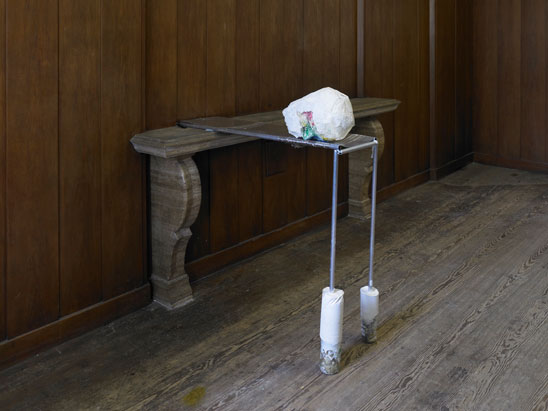
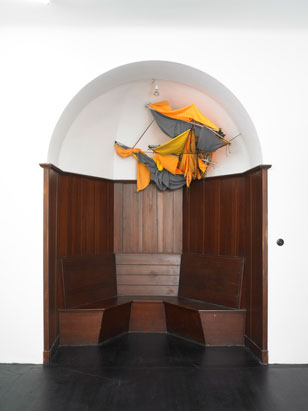
Yorgos Sapountzis, ‘Fast Cast’ and ‘Die Welt in Teilen (Office)’ (2011)
Yorgos Sapountzis takes the recognized dimensions of paving stones found in the city of Berlin and uses them to create a measuring device (a grid of of aluminium poles and fabric) to measure all floor areas of the gallery. These grids (colour coded for each room) are then collapsed and hung from the walls.
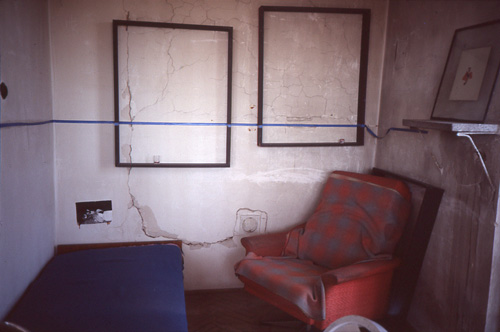
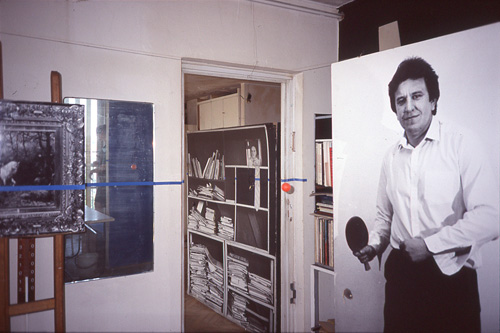
Edward Krasinski‘s studio in Warsaw, Poland.
In the late 60s blue Scotch tape became Krasinski’s medium and trademark material. The thin blue line running at the height of 130 cm, first pasted around trees and pigsty walls in the village of Zalesie near Warsaw, soon stretched across gallery windows as well as his own living/ working space.


Jens Haaning, ‘Turkish Mercedes’ (1996)
A Mercedes Benz with Turkish license plates and loudspeakers on the roof, broadcasting jokes in Turkish in Kreutzberg, Berlin, an area dominated by Turkish immigrants.
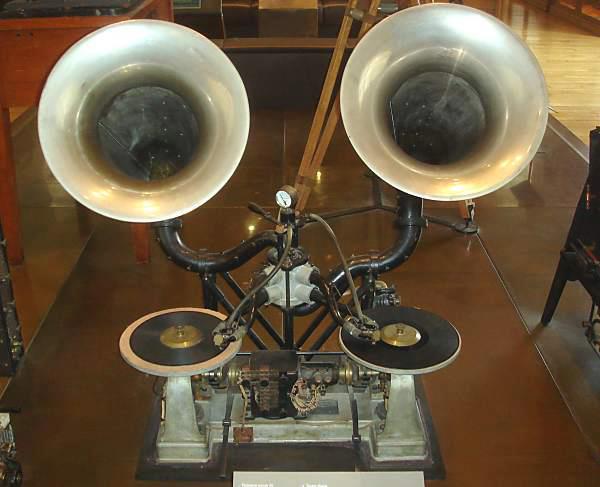
This was the first ever mixer with crossfader. The Gaumont Chronophone.
In 1910, the French engineer Leon Gaumont demonstrated his sound-and-film synchronizing Chronophone system at the Gaumant Palace in Paris, France. Gaument’s Chronophone had two gramophone platters, between which a deft operator could switch back and forth.
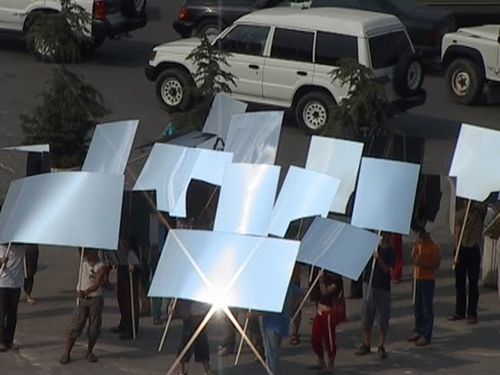
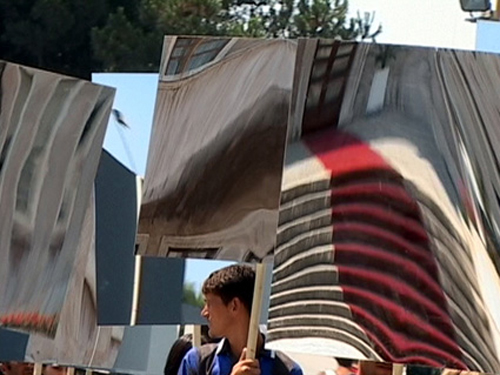
Mircea Cantor, stills from ‘The Landscape Is Changing’ (2003)
Single-channel video with sound, 22 min.